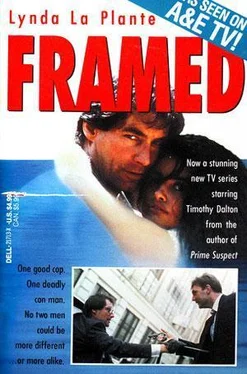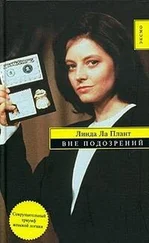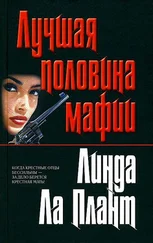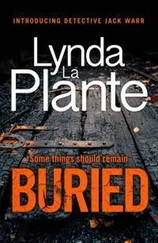“He’s on the train!” he shouted. “Stop the bloody train!”
He turned and saw McKinnes at the barrier with Shrapnel at his side and three or four officers behind them.
“He’s on the train!” Larry shouted to them. “Don’t let it move out, he’s on the train!” McKinnes, surprisingly calm, ordered the train to be detained and searched. It took half an hour. The train was delayed, passengers with their carts were kept at the barrier and people complained noisily about missing connecting trains and flights. The barriers were finally opened again thirty-five minutes after they had been closed. Passengers surged onto the train while McKinnes and his officers returned to their cars. They had found no trace of Von Joel on the train. They had lost him.
“I drove fast because Myers held a bloody gun at my neck!”
Larry was in the Superintendent’s office, sitting in a straight-backed chair opposite the desk. His breathing was labored and he sounded as if he might start crying. The Superintendent sat on the edge of the desk, watching him dispassionately. Larry was dirty and disheveled, with dark patches on his hands and face, light ones on his clothes. A cut on his right temple had bled. The blood around it, dry now, looked like a dab of maroon paint made with a coarse brush.
He stood up suddenly, agitated, moving his arms.
“If he wasn’t on the train, he had to be in the station. And he can’t get far. We’ve got the briefcase with the passports and the tickets.”
The telephone rang. Larry stared, eyes wide, as the Superintendent answered it.
“I’ll be right up,” the Super said, and put the phone down again. He looked at Larry. “Go and get yourself cleaned up, they’re all coming back in.”
“Have they got him?”
“No!” the Superintendent barked, losing his temper for a moment. “No, Jackson,” he said more quietly, “they have not.”
He turned and left the office.
Larry closed his eyes and clasped his hands to stop the shaking.
In the incident room there was an attempt at bustle as usual. Officers came and went briskly, telephones rang, fax machines and computers brought in new and revised information. At the center of it all DCI McKinnes appeared calm, smoking steadily, trying to stay untainted by the bleak, unmistakable undertow of defeat. At desks and tables around him, furtive looks were darting back and forth like forbidden messages.
Frank Shrapnel looked up from Von Joel’s briefcase, open on the desk in front of him.
“Full of junk,” he said. “The so-called passports are the kind you buy for kids at Woolworth’s. Flight tickets are used throwaways. We had every flight from Heathrow, Gatwick, and Stansted checked out, he wasn’t on one of them. We’ve still got the airports alerted — customs officers, passport control, the lot.”
McKinnes said nothing. He simply stood nodding, pulling absently at his ear, puffing his cigarette. Superficially, no one had given up hope. The case was still a case. Team members were trying to be serious and responsible in their manner, although at a nearby desk DC Colin Frisby, reading the statements from the bank, was showing ill-timed amusement at the fact that one of the clerks was called Jeffrey Archer. Beside him DI Falcon was on the telephone, taking down details from Hertz Rental on Oxford Street, the company that owned the red Granada. At another desk DC Summers put down the telephone and flapped his notebook to attract McKinnes’s attention.
“Guv... We traced the Jaguar XJL. Hired Thursday morning from Elvaston Motors. It was a woman, she paid cash. Described as young, early twenties, blonde, very slim build. They xerox all the driving licenses.” He consulted his notebook. “Name of—”
“A woman rented the Granada, Guv,” DI Falcon interrupted. “Same description, young, blonde—”
“Good, good,” McKinnes muttered, walking away.
A telephone rang as he reached the door. DC Summers answered it.
“Guv,” he shouted, his hand over the mouthpiece.
McKinnes turned, hope glimmering.
“The cashiers and the manager from the bank are ready for home. Do you want to see them again?”
“No,” McKinnes snapped, turning away again, “they can go.”
Larry was rinsing his face at a sink in the men’s washroom. He heard somebody come in and hesitate by the door. He looked up and saw McKinnes reflected in the mirror over the basins. He looked as if he might be about to leave again. As they stared at each other the station PA sounded its bing-bong signal.
“Detective Sergeant Lawrence Jackson to Commander Havergill’s office immediately.”
Larry shook water from his hands. “What’s going to happen to me, Mac?”
McKinnes had pushed open the door of a toilet stall. He paused, staring coldly.
“Mac, he had a gun stashed.”
“Correction,” McKinnes growled. “You had the frigging shooter. You had it and we’ve got witnesses that sodding saw you with it!”
“I took it off him!”
The Tannoy sounded again and the message was repeated.
“You’re wanted,” McKinnes said with a grunt, going into the stall and slamming the door shut.
Larry made his way up to the Commander’s office. He was shown in at once. The Superintendent stood besidethe desk while Commander Havergill himself, a good-looking, casually dressed man in his late forties, sat behind it, leaning forward on his elbows. Larry stopped two yards from the front of the desk and stood with his hands at his sides, feeling like a prisoner freshly arraigned.
“I’ll make it brief for the time being, Sergeant Jackson.” The Commander’s tone was neutral, with no trace of condemnation. “I think you’re able to see how matters appear from our standpoint. A special investigation is clearly called for. Under the circumstances it will be necessary to have your entire interaction with Edward Myers scrutinized. Depending on the findings, a decision will be taken as to whether or not criminal proceedings should be taken against you.”
“I know how it must look,” Larry said, “but—”
“Jackson, I can’t discuss it. If criminal proceedings go ahead, then you should retain a legal adviser. If they do not, then you will go before a disciplinary hearing. As from today you are suspended from duty, pending inquiries.”
At a little before one o’clock that day, roughly two hours after disappearing at Liverpool Street Station, Von Joel drove a sleek Saab saloon along a quiet country lane in West Sussex. He turned into the sweeping entrance of an immaculately tended estate, past wide iron gates above which a sign said green lawns health farm. As he steered the car along the main drive he smiled at Lola, who sat next to him.
“What name are we booked in?”
“Visconti,” she said. “Room six, ground floor.”
The next morning a new fervor had taken control in the incident room. The aura of defeat and failure had lifted.
In its place a stark, challenging fact was being faced: Von Joel had jumped custody, and to make matters worse, he had robbed a bank. A top priority chase was on; the bad guy had to be found and brought to book. Everyone on McKinnes’s team was committed to catching him. By ten o’clock the place was busier than ever. McKinnes convened a coffee-time huddle so that officers directly concerned in the hunt could pool their information. He started the ball rolling with a fax he had just received from Paris.
“Eddie Myers’s boat left its mooring three days ago. The crew asked the harbor master at Puerto Banus to arrange for them to drop anchor in Cannes. We’ve got Interpol giving us every assistance.”
McKinnes stepped back and DI Falcon came forward. At the same moment the PA sounded.
Читать дальше












